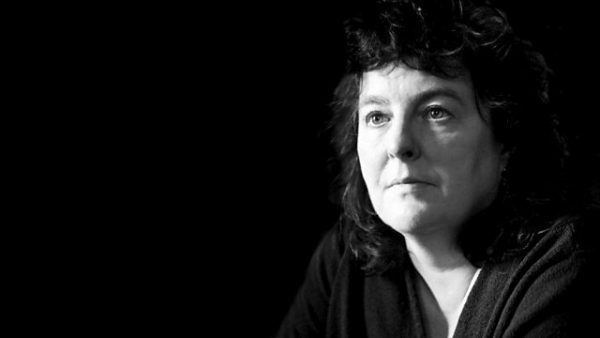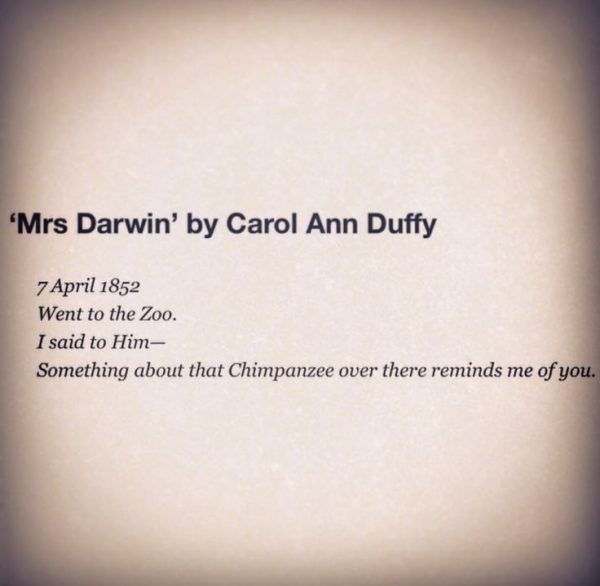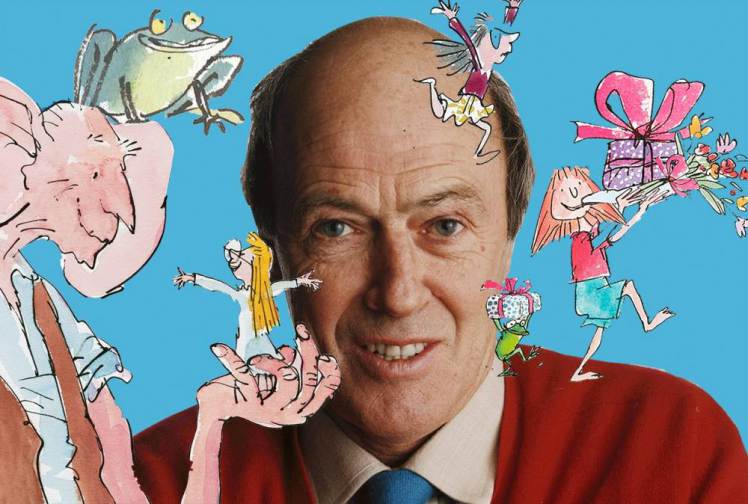I read my share of poetry (as well as books) because sometimes you’re just looking for that direct punch of emotion that can only be summed up in a few verses. And if any poet has developed this compelling power to write how we all feel, it’s Carol Ann Duffy. Described by Rose Tremain of The Guardian as ‘the most humane and accessible poet of our time,’ Duffy really is the master of modern day poetry.
Born in Glasgow in 1955, Duffy was the first child of five. At age 6 the family moved to Stafford, England, where her early passion for reading and writing was encouraged by two of her English teachers, and developed by the poet-artist Adrian Henri. She went to the University of Liverpool, and obtained a degree in Philosophy in 1977.
Having already published three poetry collections – Fleshweathercock and Other Poems (Outposts, 1974), Beauty and the Beast with Adrian Henri (a pamphlet, 1977), and Fifth Last Song (Headland, 1982), she became more widely known when she won the National Poetry Competition in 1983, and an Eric Gregory Award the following year.
As she commented for the Poetry Society website about twenty-five years later:
“In those days, one was still called a “poetess” – so it meant a lot, as a young woman poet, to begin to try to change that. And, oh girls, just look at us now…”
Following this early success, Duffy continued to flourish as a successful, published poet. Anvil Poetry Press became her publisher with Standing Female Nude in 1985 and Selling Manhattan (1987) which brought her the Somerset Maugham Award. These volumes contain some of her best-known poems including Warming her Pearls (SM), a maidservant’s erotic reflection on wearing her mistress’ necklace.
Her last collection for Anvil was the immensely popular The World’s Wife (1999) which features poems concerning the forgotten and fictional women in the lives of famous men, including Mrs Midas and Mrs Darwin (below). Duffy’s live poetry readings often feature a set of these dramatic monologues, which are particularly effective in performance.
Duffy also received the T.S. Eliot Prize for Rapture (Picador, 2005), 52 poems charting a love affair. Rapture is the collection that first drew me to Duffy and is an excellent demonstration of her talents (one of my faves is You). She uses simple language with a complex flourish to produce perfect reflections of human emotion. Anyone can read Duffy and find themselves in her words. As fellow-poet Sean O’Brien wrote: “So often with Duffy does the reader say, ‘Yes, that’s it exactly.’”
Duffy also secured a significant legacy for herself by becoming the first female poet laureate since the award began in 1619. The British monarchy and government chooses a new poet laureate every 10 years. In 2009, the public was also consulted in making the appointment, although the decision was ultimately the Queen’s. Part of Duffy’s responsibilities in this role is to write works commemorating royal events. In other words, this is basically the greatest poetry accolade, which has been held by the likes of William Wordsworth and Alfred Lord Tennyson.

Source: BBC
She is also the first openly gay poet laureate, and says she refuses to be labelled as the “lesbian poet, whatever that is.” – a comment that I find frankly brilliant. She consistently refuses to shy away from controversy, something that was demonstrated with her striking response to the Orlando shooting earlier this year with her poem, After Orlando: Gay Love
For me, Duffy is the epitome of what it means to be a poet. She makes you feel with the simplest of words and she conveys the un-conveyable with a single line. Even if you’ve never read a poem in your life, Carol Ann Duffy is definitely worth your time.
YouTube Channel: alfpang
Featured image via BBC




